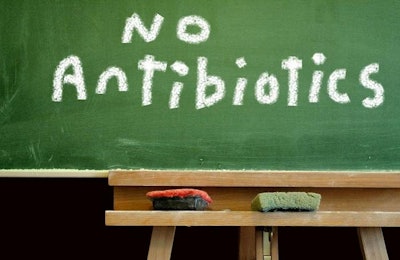
When I learned that the Los Angeles Unified School Board was eliminating chicken raised with antibiotics from its cafeterias, it was not a huge surprise. However, when I read the press release the school district released on the topic, I was very surprised — and also saddened.
It also made me very glad I am not paying taxes or educating my kids in that school district.
I really don’t have a problem with the fact that the school district has chosen to serve poultry raised without antibiotics there, but I do have a problem with the text of the press release. Schools have an obligation to educate the next generation, but it seems hard to believe that L.A. schools are meeting that obligation, given the amount of generalizations made and myths propagated in that news release.
‘Healthier foods’
The first sentence of the school district’s press release should be a cause for concern for those in the poultry industry. It reads: “Today, the Los Angeles Unified School District Board of Education made a significant move to give students better access to healthier foods.”
What credible source said that antibiotic-free chicken was healthier than poultry that was judiciously treated with antibiotics? It seems that most sources I have encountered show no real solid health benefit to chicken raised without antibiotics and that U.S. Food and Drug Administration (FDA) rules require the cessation of antibiotic administration well in advance of processing to assure there are no antibiotic residues in the meat that is eventually consumed.
As Dr. Joseph Perrone, chief science officer for the Center for Accountability in Science, says, “Choosing a burrito or a foot-long sub labeled antibiotic-free, might make you feel like you’re making a healthier choice, but in reality, you’re paying more for a label.”
I get it that the school district wants its patrons to feel comfortable with the meals served at the school, but to just make a blanket statement without any citations from outside sources as to why it reached the conclusion that it is healthier seems a little irresponsible.
Hormone-free poultry
To find another fallacy, one only has to read the second sentence: “They unanimously approved the contract for antibiotic and hormone-free chicken products.”
Are we to believe that the school district was previously serving the products of chickens that were given hormones? Of course not, because the use of hormones in chickens and turkeys in the United States is also forbidden by the FDA. Similar laws are in place in the European Union and most developed nations.
I realize the text concerning no hormones in poultry was thrown in simply to further put the minds of the misinformed at ease. However, while the school district was trying to make itself look good, it made the poultry industry look bad by insinuating the industry does something that it in fact does not.
Link between lunches and graduation rates
Reading on, the press release gets flat-out absurd.
School board member Mónica García stated: “Students asked the district for healthier food to increase academic achievement and we agree. Today, we continue to celebrate a district that embraces student and parent voices to increase healthy food options, expand opportunities for small businesses and committed labor partners, and strengthen the path to 100 percent graduation.”
Really? Ms. García’s reckless comment not only insults the intelligence of school district patrons but also undermines the greater social problems we face that truly contribute to why students drop out of school.
Poultry industry must keep on educating
It is difficult to tell if the L.A. school district is really ignorant about the poultry industry and the use of antibiotics in animal agriculture. It could be that it knows that antibiotic use does not truly make the meat product any less healthy to consume, but chooses to ignore that because what the public doesn’t know won’t hurt them?
In either case, the press release proves how important it is that the meat and poultry industries must continue to work hard to educate the public of the truths of antibiotic use and the lack of hormone use.
Groups like the Center for Accountability in Science and the U.S. Poultry & Egg Association (USPOULTRY) have put together good videos to help get those messages out, and both would be worthy of a view to help you do your part in creating an intelligent dialogue to clear up misconceptions about antibiotic and hormone use in poultry production.


















